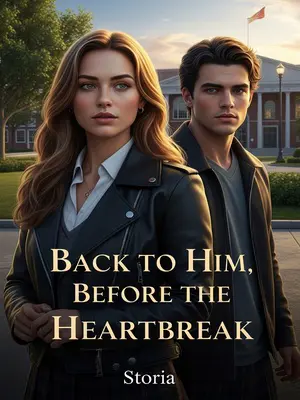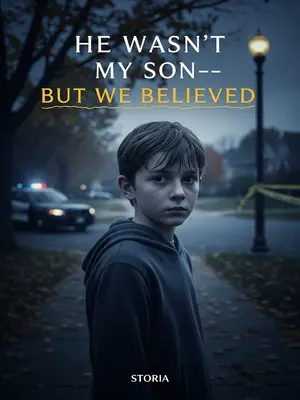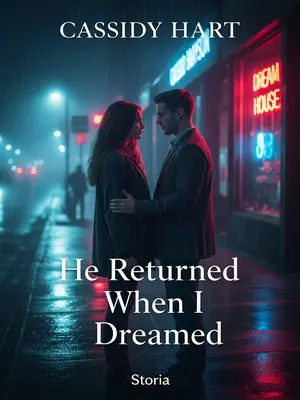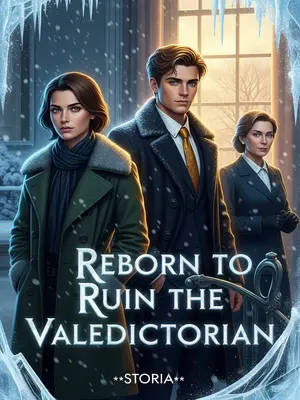Chapter 4: The Grave I Can’t Leave Behind
"What’s wrong? Upset stomach?" I asked, gently rubbing his back.
Jamie’s eyes were red, tears at the corners. He wiped his face on his sleeve, embarrassed.
"Need me to call a doctor?"
"No, it’s just a minor thing," he said, voice shaky as he tried to stand up straight.
"If you’re not feeling well, don’t tough it out. Go to the hospital. It’s not like we can’t afford it."
I leaned against the doorframe, trying to sound casual. "I’m the CEO of Lakeside Holdings, so don’t worry about money, sis."
His face was still flushed, but he cracked a smile.
Seeing him perk up, I went back to my room.
My exhaustion had faded. My suitcase was already packed; a small bag sat on top—Jamie’s handiwork, with emergency meds and bottled water tucked inside.
He was always thoughtful. Since he couldn’t pay me back, he came home every week and cleaned the apartment top to bottom.
Sometimes, after a late night out, I’d find soup waiting for me, with a sticky note reminding me to drink it before bed.
And every time I traveled, he packed my bag.
If things worked out, after graduation, he’d join Lakeside Holdings. Maybe even take over one day, if he wanted it.
Thinking of that, I boarded my flight to Maple Heights.
Maple Heights was where I grew up—a small town with a foster home nobody ever talked about. It was rundown, tucked away at the edge of town. Four staff members, including the director, ran the place.
After I made it in Chicago, I donated enough money to fix up the foster home. Now it was the biggest welfare institution in Maple Heights.
When I landed, I checked into a hotel, dropped off my luggage, and headed straight for the cemetery.
Daniel Hayes was buried there.
It was a modest, scruffy cemetery, bought with the last of the Hayes family’s money after they’d gone bankrupt trying to save him.
When I got rich, I visited Mrs. Hayes. She didn’t want to disturb Daniel’s rest, so she let him stay where he was.
I couldn’t do much, but I renovated the whole cemetery—new headstones, fresh landscaping, a bench under a big oak tree.
The photo on Daniel’s tombstone showed a boy with a gentle smile, cheeks still a little round. Nothing like how he looked at the end—skin and bones, cheekbones sharp as knives.
I knelt in front of the grave, brushed the dust off the stone, and let my hand linger on his picture.
Only here, in this moment, did Daniel’s face come back to me, clear as day.
"Daniel, I’m starting to forget what you looked like. What am I supposed to do?" I whispered, leaning in, trying to memorize every detail of the faded black-and-white photo.
"I’ve looked for so many people, but none of them are you."
"Some have your eyes, some your build, some even your voice, but none of them are you. Their personalities aren’t yours, their souls aren’t yours."
The more I spoke, the heavier the sadness pressed down. My face, usually so composed, twisted with grief I couldn’t hide.
"I’ve taken care of your parents. I brought them to Chicago, set them up in a nice house with help."
"You just had bad luck, Daniel. If you’d lived a few more years, I could’ve paid for your treatment."
"Just a little bit longer…" My voice broke, and I choked on the words.
"Just that little bit…"
Daniel Hayes died the summer after we took the SATs, the day before my acceptance results came out.
His dream was simple: go to college in Chicago, land a good job, give his parents a better life.
But he had to leave school in his sophomore year, and he never made it to graduation.
All my college applications were for Chicago, starting with the best schools. My grades were good, and I got accepted early.
But Daniel never knew there was a girl who wanted to follow his dream for him.
I’d planned to use my acceptance as an excuse to get closer to him, but instead, I got his critical illness notice, then his death notice.
I remember standing outside the hospital room, frozen, watching the nurse wheel him away.
Finally, they covered him with a white sheet. That was all that was left of someone so bright, so kind.
I cried for three days straight, eyes so red and swollen they bled, until there were no more tears.
Even after he was cremated, I never managed to get a single photo of him.
I sat by the grave and told him about my life—about the students I’d sponsored, the foster home, the leukemia foundation I’d started with my own money.
Yeah, Daniel had leukemia—not some rare, incurable disease.
But most illnesses are poor people’s diseases. Mr. and Mrs. Hayes sold their house, went into debt, but couldn’t find a bone marrow match. Daniel suffered through endless chemo until he had nothing left.
In the end, the disease flared up suddenly, and he was gone before they could even start treatment.
My god fell that summer.
I worked nonstop for a week just to get two days off, which I spent quietly in Maple Heights.
It always rains in Maple Heights over Memorial Day. The sky hangs low and heavy, the air thick with memories. I visited the high school, the hospital, the foster home—making the same rounds as every year.
Now, the thing Rachel Serrano lacks least is money. The principal and director beamed when they saw me, and after the usual speeches and photos, I headed back to Chicago.
I sent Grant a text, then went home and slept harder than I had in months.
Maybe because I’d just seen "Daniel," I didn’t feel the usual pull to see Grant. The ache in my chest eased a little, at least for now.
Every year at this time, I go back to Maple Heights, and Grant never asks. But this year, when I woke up, I saw a string of texts from him.













